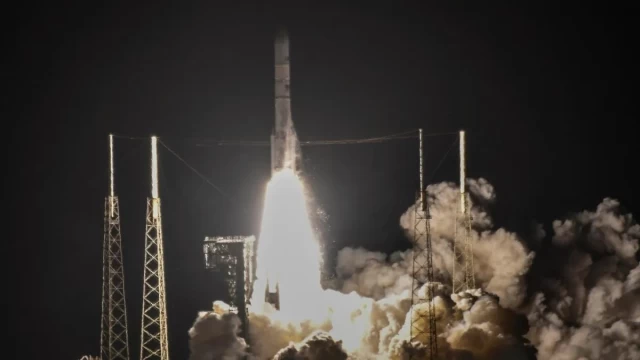'Critical' fuel leak jeopardizes US company's attempt at moon landing.
- Posted on January 9, 2024
- Science
- By Arijit Dutta
- 415 Views
The attempt at a US moon landing faced a setback when a critical fuel leak jeopardized Astrobotic's spacecraft merely hours post-launch. The Pittsburgh-based company's Peregrine lander suffered a propulsion system failure, dimming hopes of a planned moon landing on February 23. NASA's contribution and the subsequent assessment of alternative mission profiles highlighted the added risks and opportunities in partnering with private companies for lunar missions. The incident poses a challenge to Astrobotic's bid to become the first private entity to land successfully on the moon.
 Image Source -www.bnnbreaking.com
Image Source -www.bnnbreaking.com
The
recent endeavor towards a US moon landing faced a severe setback when a
'critical' fuel leak emerged, jeopardizing the entire mission. Astrobotic
Technology, a Pittsburgh-based private company, encountered an unexpected
propulsion system failure mere hours after the spacecraft's launch on January
8.
This
critical incident raised concerns about the planned moon landing scheduled for
February 23. The company's spacecraft, named Peregrine, had initially managed
to orient itself toward the sun to harness solar energy for battery charging.
However, a specialized team identified a 'critical loss of fuel' within the
propulsion system, dampening hopes for the mission's success.
Astrobotic Technology swiftly released a statement acknowledging the crisis. The company expressed its commitment to evaluating alternative mission profiles in light of this unforeseen challenge. This turn of events poses a significant threat to Astrobotic's aspirations to be the first private entity to achieve a successful lunar landing, a feat previously accomplished by only four countries.
Also Read: Divya Pahuja Case: New Suspect Apprehended, Probe Intensifies
The
involvement of NASA, which provided substantial financial backing to Astrobotic
and another Houston-based company for their lunar endeavors, highlighted the
collaborative efforts between the public and private sectors in space
exploration. NASA emphasized the inherent risks associated with partnering with
private firms for expedited and cost-effective lunar missions. Joel Kearns,
NASA's deputy associate administrator for exploration, emphasized the agency's
readiness to embrace setbacks as learning opportunities.
The
incident underscored the complexities and uncertainties inherent in space
exploration, emphasizing the challenges faced by private companies venturing
into uncharted territories. Astrobotic's setback serves as a stark reminder of
the intricacies involved in pioneering missions beyond Earth's confines,
highlighting the need for meticulous planning and preparedness in the pursuit
of space exploration milestones.



